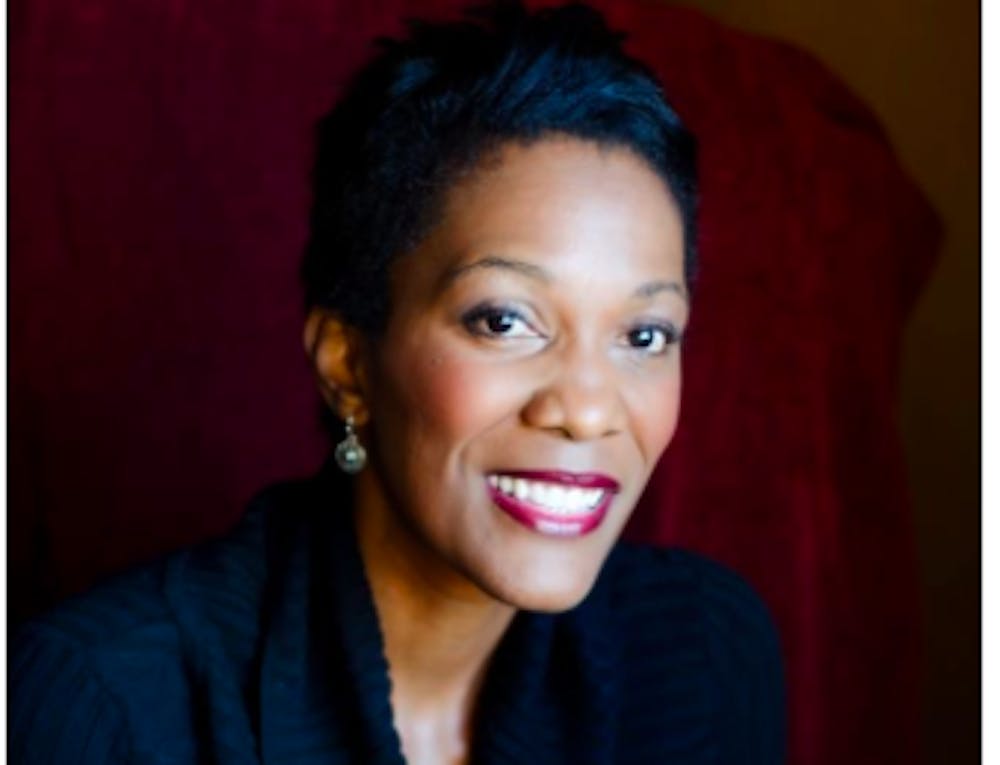The journey of writer, film producer, speaker and ASU alum Yvette Johnson began 10 years ago with a video of her late grandfather.
Johnson was researching her family history in Greenwood, specifically centered on her grandfather Booker Wright. From her research came the creation of her recently published memoir The Song and The Silence.
The video Johnson found was filmed in 1966. It was an interview her grandfather, Booker Wright, had agreed to be in - a documentary that was aired on NBC, which displayed a moment of vulnerability from the man speaking out on racism in Mississippi.
Even though Johnson’s grandfather passed a year before her birth, she has learned and evolved her perspective on race from the man she never got to meet.
“I learned about (the video) ten years ago but I didn’t see it until four years later. I was told that it was powerful, that decades later, people were still talking about it,” Johnson said. "A lot of people felt like the Civil Rights Movement finally made sense to them when they saw my grandfather’s speech. But I didn’t understand until I saw it myself.”
The Song and The Silence is both a journey and a memoir that provides a greater understanding of the consequences of intolerance in American society.
The book began as a blog of experiences, but when a one of Johnson’s filmmaker friend’s agent read the manuscript, the idea of the book was born.
However, Johnson had difficultly telling the story in a way that seemed the most effective.
“It funny because I actually tried to write this book a variety of different ways," Johnson said. "I had to rewrite and rewrite and rewrite it, and there was always just something wrong with the narrative. It just wasn’t working.”
Johnson said it clicked when she decided to include more of her personal perspective.
“And finally I decided… to include my own struggles with understanding my racial identity, and that was when the book really clicked," she said. "It was like I was trying to find a way to say something that was true without having to share my own truth."
"My parents had their own wounds... they parented in a wounded way." @bookerproject on @PubWklyRadio: https://t.co/72woUKSeLU pic.twitter.com/V7I5ovd39Y
— Publishers Weekly (@PublishersWkly) May 8, 2017
The original video of the interview was less than three minutes. Wright spoke of common basic humanity, showing raw and strong emotions.
In the novel and her speaking events, Johnson discusses the biases that effect everyday interactions between people, known as unconscious biases.
"When I talk to people about unconscious biases, I have something that I call the drill-down method," Johnson said. "So what I do is I try to examine my behavior in a certain situation and I remove what my intentions were or what my values are because bias is really about behavior.”
She said she has learned that biases live in a separate section of the brain, separate from our values and morals, which explains why it is hard to see bias.
Having biases does not mean a person is a monster; rather, it makes a person a human.
"I always tell people that when you address your biases, you are actually able to be the person who you believe yourself to be," Johnson said.
An important takeaway from her messages? That we have more in common than our points of difference and that no one person is as correct as they think they are.
Interacting with people who have different viewpoints and trying to understanding their point of view is an issue many students may experience on college campuses.
Mikayla Wilson is a rising arts education sophomore at NAU who is familiar with Johnson's book. She said it is important to hear different viewpoints, even if one doesn't agree with them.
“To engage in meaningful conversation with people we differ from… we have to just put aside our differences and acknowledge and respect their own separate opinion," Wilson said. "Even though we know we might not like it. The conversation has to be more about getting to know a person instead of just us validating our own opinions.”
Romonte Moore, a rising informatics sophomore at ASU who has also read Johnson's work, believes other factors, such as media, play a role in how people interact with those who have different opinions or backgrounds.
"In addition to growing up, people see this in movies and other media, which makes it harder to discuss something because we subconsciously act like what we have seen or heard on TV," Moore said.
Reach the reporter at lcarbaj2@asu.edu or follow @LurissaCarbajal on Twitter.
Like The State Press on Facebook and follow @statepress on Twitter.




